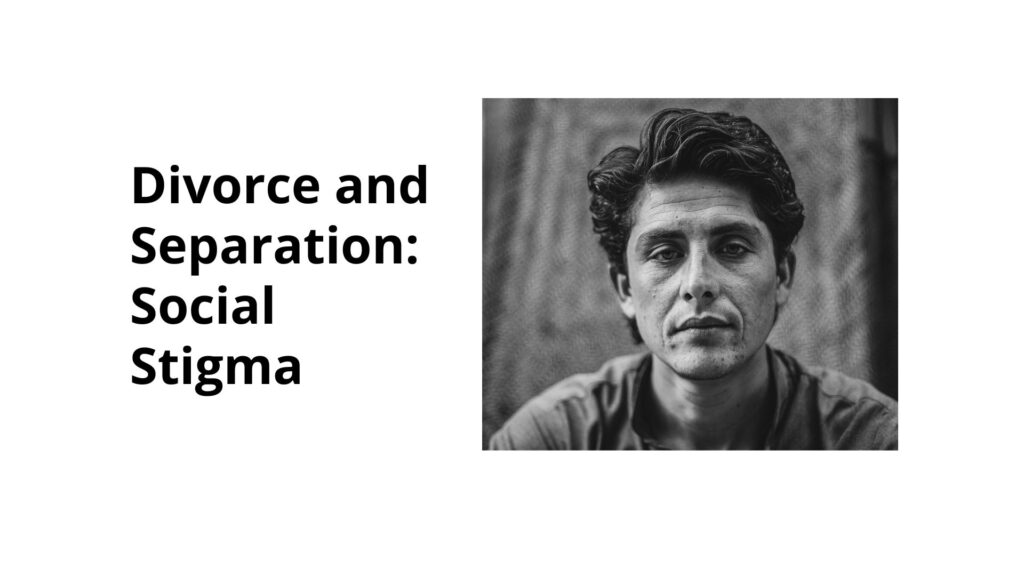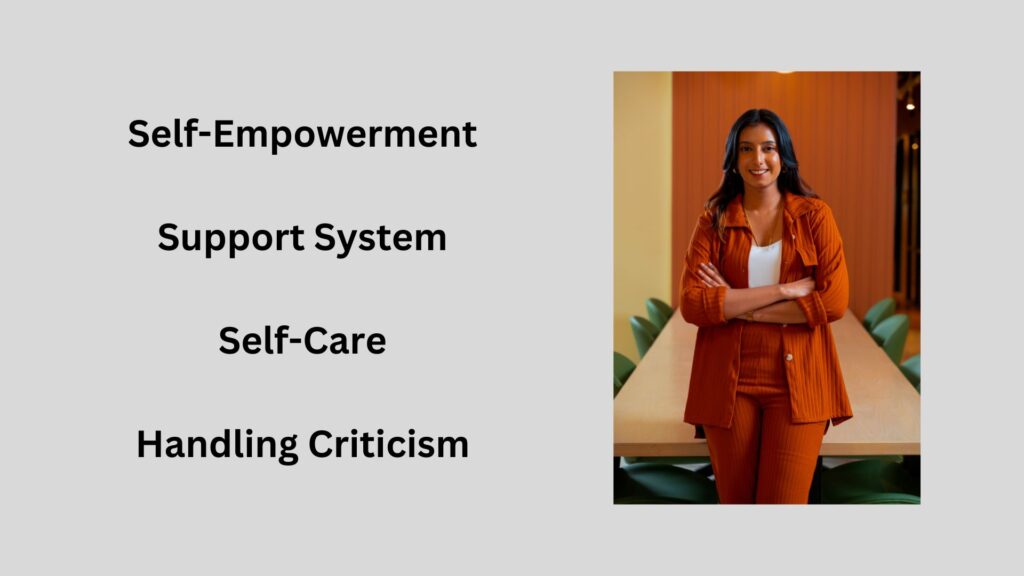
Is There Social Stigma Associated with Divorce in Modern India?
To many of us living in urban India, divorce among family and acquaintances is not uncommon. But is divorce acceptable in the larger nation? If one looks at social media posts, for instance, it is clear that divorce in India, whilst legally recognised, carries a fair amount of social stigma. This is rooted in cultural values that emphasise the concept of family honour and the importance of maintaining an undivided family unit. Consequently, divorce is often seen as a failure, particularly for women, and can lead to social ostracism.
Loss of Honour
Divorce is seen as a loss of honour, not just for the individuals involved but also for their families. This is particularly true for women, who are expected to uphold the family’s reputation.
Social Isolation after Divorce
Divorced individuals, especially women, can face social exclusion from their extended families and communities. This can manifest in the form of subtly being sidelined at family gatherings or even being excluded from invitations and social groups. For instance, divorced women, like widowed women, are often not allowed to enter the mandap area during weddings.
I am not invited to family functions and festivals in our village post-divorce. It doesn’t seem to matter to my extended family that my ex-spouse was extremely abusive!
Sheetal, Receptionist, Mumbai
Judgement and Criticism
Despite the increasing challenge to patriarchal norms by younger generations, divorced individuals still face judgemental attitudes and criticism from society. This can include speculation about the reasons for the divorce and assigning blame, often disproportionately to women.
I was judged as doubly ‘fallen’ because I had not one, but two divorces. I was a social pariah.
Devika, Professor, Bengaluru
Impact on Remarriage
The stigma of divorce can extend to remarriage, making it more challenging, particularly for women, to find acceptance and social inclusion even after remarrying.
A news report highlighted the social stigma around divorce in South Asian communities, including India, through the example of a woman celebrating her divorce with a party. The woman, Shehrose Noor Mohammad, faced criticism on social media. When Ms Mohammad shared a video of her “divorce party”, many comments suggested that divorce should not be celebrated and expressed concerns about the impact of divorce on the institution of marriage and the rise of single-parent families. Some comments blamed women’s freedom for the perceived decline in the sanctity of marriage.
The online debate following the video reveals a societal preference for women to remain in unhappy or even abusive marriages rather than seek divorce. It illustrates the deep-seated stigma against divorce and the societal pressure on women to endure difficult marital situations to maintain social appearances.
Religious Stigma Related to Divorce
The religious stigma surrounding divorce varies across religions. Many faiths, particularly Catholicism and some branches of Christianity, view marriage as a sacred, lifelong covenant, making divorce highly discouraged or even forbidden, leading to judgment and exclusion.
Hinduism, particularly among the upper caste communities, whilst not explicitly forbidding divorce, emphasises the sanctity of marriage as a lifelong union (samskara). Divorce is then seen as undesirable and against dharma (righteous conduct), leading to social stigma, particularly for women.
Parsi (Zoroastrian) tradition, more liberal than some, historically viewed marriage as highly sacred. Although divorce is permitted in modern Parsi law, it can carry a degree of social stigma within the community, especially for older generations.
Islam permits divorce, but it is viewed as a last resort, and whilst not inherently stigmatised in religious doctrine, cultural interpretations can lead to social disapproval. This is particularly true if the divorce is not conducted according to religious procedures or if deemed to be against religious teachings on family sanctity.
Sikhism recognises marriage as a sacred union and permits divorce under certain circumstances, such as infidelity or irreconcilable differences. Even though Sikh scripture does not stigmatise divorce, social stigma can still exist within localities.
Across Indian religions, varying degrees of doctrine contribute to social stigma, influencing cultural attitudes even outside of strictly religious circles.
People tend to think that the concept of monogamy and nuclear families are rooted in Indian tradition. In actuality, these are recent trends, mostly brought about as a result of Western colonialism.
Anita, Gynaecologist, Kochi
To know more about the history of divorce in India, read our blog on the same here.
Stigma After Live-in Relationship Ends
Although live-in relationships are gaining traction, they still face social and legal complexities in India. The lack of social acceptance can lead to disapproval and judgement from family and community members. While the law recognises live-in relationships for certain purposes, they do not have the same legal status and rights as married couples. When a live-in relationship ends, which is called ‘separation’ in Western countries, individuals can face unique stigmas and challenges.
Increased Social Scrutiny
The break-up of a live-in relationship can be met with even greater social scrutiny and judgment than divorce. This is because live-in relationships are viewed as unconventional, and their failure can be seen as a validation of societal disapproval.
Finding an apartment was difficult for my partner and me. Then, when we separated, I could not stay in any of the apartments in the complex because people were judgemental. The question of my morality or lack thereof was brought up when I spoke to several landlords. Fed up, I moved to a different part of the city.
Theresa, business analyst, Secunderabad
Lack of Formal Closure
Unlike divorce, which has a legal process for closure, the end of a live-in relationship may lack formal recognition and procedures. This may lead to emotional ambiguity and make it harder for individuals to gain social acceptance and move on.
Stigma of “Failed” Relationship
People may face the stigma of having attempted an unconventional relationship that “failed”. This can be challenging in Indian society where conformity to traditional norms is highly valued.
Difficulties in Future Relationships
Similar to divorce, the experience of a failed live-in relationship can impact future relationships. Women and men face questions and judgements about their past choices and relationship history, potentially affecting their prospects for marriage or other relationships.
I had a long-term girlfriend at University in the US. The relationship ended a while ago and I returned to India after I completed my doctorate. Finding a girl/woman who did not have a problem with my past relationship status was tough when I finally decided to marry.
Apu, Scientist, Chennai
Impact of Divorce and Separation Stigma on Mental Health
The social stigma surrounding divorce can lead to feelings of shame and guilt, resulting in isolation and poor decision-making. Moreover, societal judgment can trigger anxiety and depression, making it difficult to move forward.
For most people, the pressure to avoid the social stigma of divorce can be overwhelming. Whether from family, friends, or society at large, concerns about others’ perceptions can lead to difficult decisions. These pressures may result in a person staying in an unhappy marriage or relationship longer than necessary or making choices that do not align with their long-term goals. We need to recognise that divorce is a personal decision, and there is no shame in seeking a path that prioritises our well-being.
Other people’s views on divorce are shaped by their experiences or societal pressures. For example, those who justify staying in an unhappy marriage may view the decision to divorce as undermining their choice. Similarly, close family or friends may resist one’s relationship changes because of its impact on their own lives, such as altering long-established traditions. Although these reactions are natural, remember that others perceive divorce through their own lens. Ultimately, we need to make decisions that are best for us.
Destigmatising Divorce and Separation
It is important to remember that while we cannot control external circumstances, including others’ judgments, we can control how we react to them. Embracing a mindset of empowerment is key to overcoming these challenges.

Self-Empowerment Post Divorce and Separation
The first step in overcoming the stigma is empowering ourselves. This means taking charge of our lives and making decisions that are in our best interest, regardless of others’ opinions. One way to empower ourselves is by focusing on our aspirations. Reflect on the future and create a plan to achieve the life we desire.
Building a Support System
A strong support system is necessary when coping with the challenges of divorce/separation, including the social stigma. Seeking a therapist or counsellor who specialises in divorce can provide a safe, non-judgmental space to express our feelings and develop tools for managing the stigma. Joining a divorce support group can also help, offering a sense of community and advice from others who understand our situation.
Practising Self-Care During Divorce and Separation
Divorce/separation can take a toll on our physical and emotional well-being. Therefore, practising self-care is critical during this time. This includes ensuring adequate sleep, maintaining a healthy diet, engaging in activities that we enjoy, and staying active in general.
Handling Criticism After Divorce and Separation
It is important to set boundaries with those who may be judgmental or critical of our decisions. We do not need to justify or defend our choices to anyone. If someone is persistently judgmental, it is perfectly acceptable to inform them that their behaviour is not welcome.
Conclusion
Divorce, separation, and the dissolution of live-in relationships in India are often accompanied by social stigma, rooted in cultural norms and societal expectations. While attitudes are evolving, particularly among younger generations and in urban areas, these stigmas continue to pose challenges for individuals navigating relationship breakdowns in India.
It is vital to remember that divorce is our decision, and it is finally about improving our lives. By empowering ourselves, building a supportive network, practising self-care, setting boundaries, and seeking professional help (if needed), we can direct this process with confidence and move toward a more fulfilling future.
Ready to Move Beyond the Stigma? Join Us Today!
Discover a supportive community designed for divorced and separated individuals on our app. Find better matches and get invaluable tips to navigate through the various aspects of divorce. Our blogs offer practical advice and insights to help you rebuild your life with confidence.
Take the first step towards a brighter, stigma-free future. Join us now and connect with like-minded individuals who share your goals and values. Download our app and start your journey to a fulfilling life today!
References
Freed, Meghan. “Empowering Yourself: How to Handle Social Stigma Surrounding Divorce.” Freed Marcroft, June 15, 2023.
Yasmin, Shahana. “Pakistani Woman Throws Divorce Party After Leaving Indian Husband.” The Independent, July 30, 2024.

